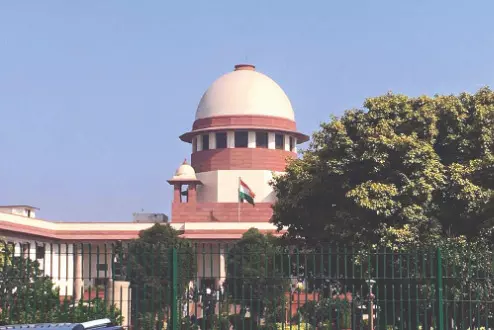SC upholds state’s power over madrasa teacher appointments

Kolkata: The Supreme Court has reportedly reaffirmed the Bengal government’s authority to appoint teachers in aided madrasas, dismissing a fresh challenge to its 2020 ruling that had upheld the constitutional validity of the Madrasah Service Commission Act, 2008.
A bench of Justice Dipankar Datta and Justice Augustine George Masih reportedly threw out a petition filed by the managing committee of Contai Rahmania High Madrasah, which sought to reopen the four-year-old decision. The court said the plea, filed under Article 32, was legally untenable as the petitioner’s earlier writ had already been decided. The bench imposed a fine of Rs 1 lakh, observing there was “no merit” in the arguments raised.
The managing committee had relied on a Supreme Court’s judgment to justify its fresh filing. The judges, however, rejected the comparison, noting that the precedent had no bearing on service law matters.
In January 2020, a bench of Justices Arun Mishra and UU Lalit (both since retired) had upheld the Bengal law empowering the commission to recommend and appoint teachers in government-aided madrasas. While Article 30 grants minority institutions autonomy, the court had said appointments must rest on merit and align with the national interest.
The 2020 verdict drew heavily from the 11-judge bench decision in the T.M.A. Pai Foundation case, which clarified that minority rights are not absolute and may be subject to reasonable regulation. At the same time, the court had noted that institutions retain the liberty to reject a candidate recommended by the commission if found unsuitable.
With this order, the earlier judgment stands reinforced, consolidating state oversight in the recruitment process for Bengal’s aided madrasas.



